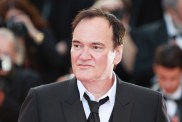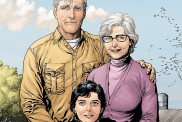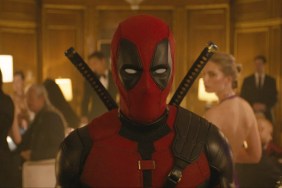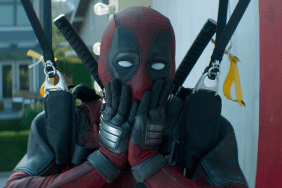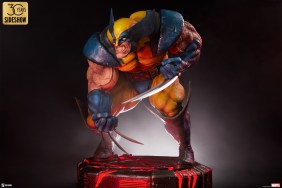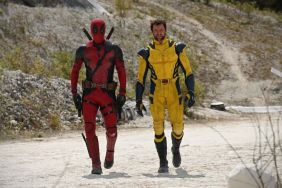Cast:
Hugh Jackman as Logan / Wolverine
Rila Fukushima as Yukio
Tao Okamoto as Mariko Yashida
Famke Janssen as Jean Grey
Will Yun Lee as Kenuichio Harada
Svetlana Khodchenkova as Viper
Brian Tee as Noburo Mori
Hiroyuki Sanada as Shingen Yashida
James Fraser as Allied POW
Hal Yamanouchi as Yashida
Garret Sato as Dying Yakuza
Luke Webb as Allied POW
Ken Yamamura as Young Yashida
Directed by James Mangold
Story:
James Logan AKA Wolverine (Hugh Jackman) has been haunted by nightmares after the death of Jean Grey (Famke Jansen), so he takes up an offer to go to Japan, invited by Kenuichio Harada (Will Yun Lee), an old friend he saved during World War II who is now dying of cancer. Once there, Logan is asked to protect Haradas granddaughter and heir Mariko (Tao Okamato) as he gets caught up in a deadly web of crime and betrayal just as hes mysteriously losing his healing powers.
Analysis:
As the summer starts winding down and we start getting to the dregs of summer, heres one nice late summer surprise for those who may have already tired of “superhero” or “comic book” movies. Hugh Jackmans return as “The Wolverine,” this one directed by James Mangold (“3:10 to Yuma,” “Walk the Line”), feels like it has very little in common with that popular genre, instead inserting the Marvel Comics character into a blend of Asian film genres that creates something that not only works in context with what came before but also stands on its own.
Based loosely on the 1982 mini-series by Chris Claremont and Frank Miller, the film opens with a prologue involving Logan saving a Japanese soldier from the atomic bomb at Nagasaki before shifting to Canada where Logan has gone to pot following the death of Jean Grey (in “X-Men: The Last Stand”), still haunted by his involvement in her death. When he finds a dying bear in the woods thats been poisoned by a hunter, he looks for the man responsible, the one portion of Mangolds film thats taken almost verbatim from the comics.
After that, it quickly branches off and diverges with many choices made that make for far stronger storytelling. For instance, Logan first meets Yukio, Haradas fiery assassin, when she comes to Canada to deliver a sword from her master. As one might suspect from the pedigree of the screenwriters–two of them, Christopher McQuarrie (“The Usual Suspects”) and Scott Frank (“The Lookout”) have directed strong crime-thrillers themselves–its obvious the main reason “The Wolverine” works as well as it does is because a lot of thought was put into creating a complex story and therefore, a richer film, even though its sometimes hard to keep track of all the characters. Once they get to Japan, the attention paid to maintaining Japanese rituals and tradition throughout also proves that Mangold was the right man for the job of directing.
All these factors come into play at Haradas funeral when all breaks loose as Japanese criminals make a play to kill his heir and granddaughter Mariko, leading to a jaw-dropping Hong Kong-style gunfight and chase through the streets of Tokyo and onto a moving bullet train. This is just one genre style Mangold ably plays with over the course of the film as we get Kurosawa-like samurai swordplay and a whole lot of ninjas with the results being far more violent than many other PG-13 superhero movies. The action slows down enough to spend some time establishing the romance between Logan and Mariko, something that happened off-panel in the original comic book series, which gives a welcome respite from the adrenaline-filled action scene leading up to it. Instead of the love triangle between Logan, Mariko and Yukio from the comics, they instead use Jean Greys ghost as the “other woman” that threatens to ruin Logans attempt to be happy with Mariko.
Theres no question Hugh Jackman really knows this character inside and out and his continuing growth as a dramatic actor greatly helps to give the material far more cinematic depth than most summer movies. While we still get lots of great Wolverine one-liners, this may be the first movie where you really feel Wolverines loneliness and pain from living for decades, despite it being a running theme through all the X-movies.
To Mangolds great credit, he gets solid dramatic performances from his mostly Japanese cast despite them working outside their comfort zone in English and some may be surprised that neither Rila Fukushima, who is a lot of fun as the feisty Yukio, nor Tao Okamoto as Mariko, have acted in a movie before. They both hold themselves well when acting opposite Jackman and the far more experienced actors like Hiro Sanada. It may be a little odd for those who know his work seeing 32-year-old Will Yun Lee playing the older Harada.
The only time the movie really falters in a big way is in the third act when it awkwardly transforms itself into a straight comic book movie, more in the vein of Singers first “X-Men” movie, which is also where Mangold seems the least comfortable. Svetlana Khodchenkova’s Viper is the type of comic-booky femme fatale weve seen way too many times and shes nowhere near as good at is as Rebecca Romijn as Mystique, joined by a large seemingly robotic Silver Samurai, which all leads up to a climatic sequence that may be a little hard to swallow. Although things do fall apart by the end, stick around through the credits for a sequence that will give you even higher hopes for Bryan Singer “X-Men un-reboot” out next year.
The Bottom Line:
Fans of the character disappointed by “X-Men Origins” who have been clamoring for a great Wolverine movie, one that lives up to Bryan Singers early “X-Men” movies, should be thrilled. Those just wanting a solid, well-made action film might be surprised by how much depth Mangold brings to the mix. The results are the best comic book movie of the summer and one that rarely feels like a comic book movie.

